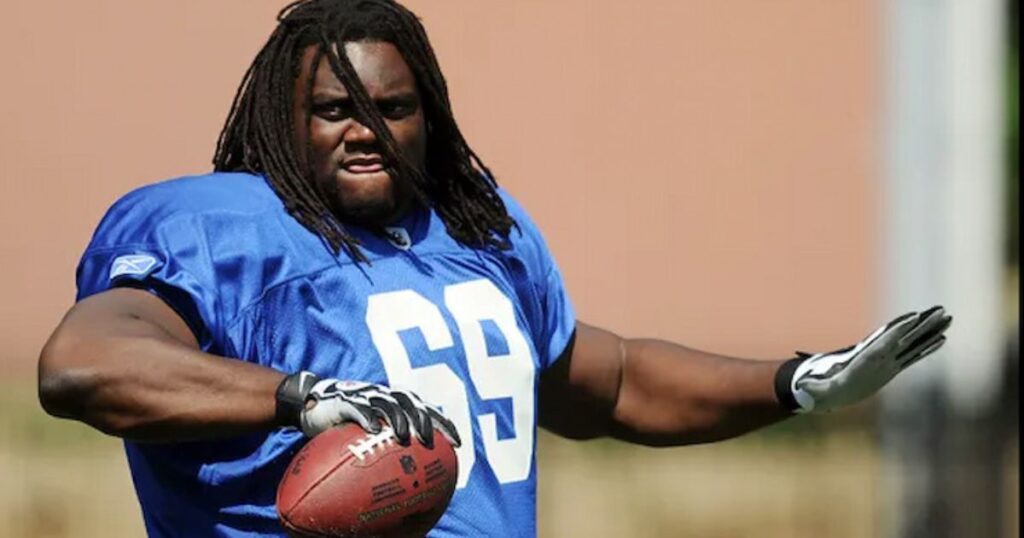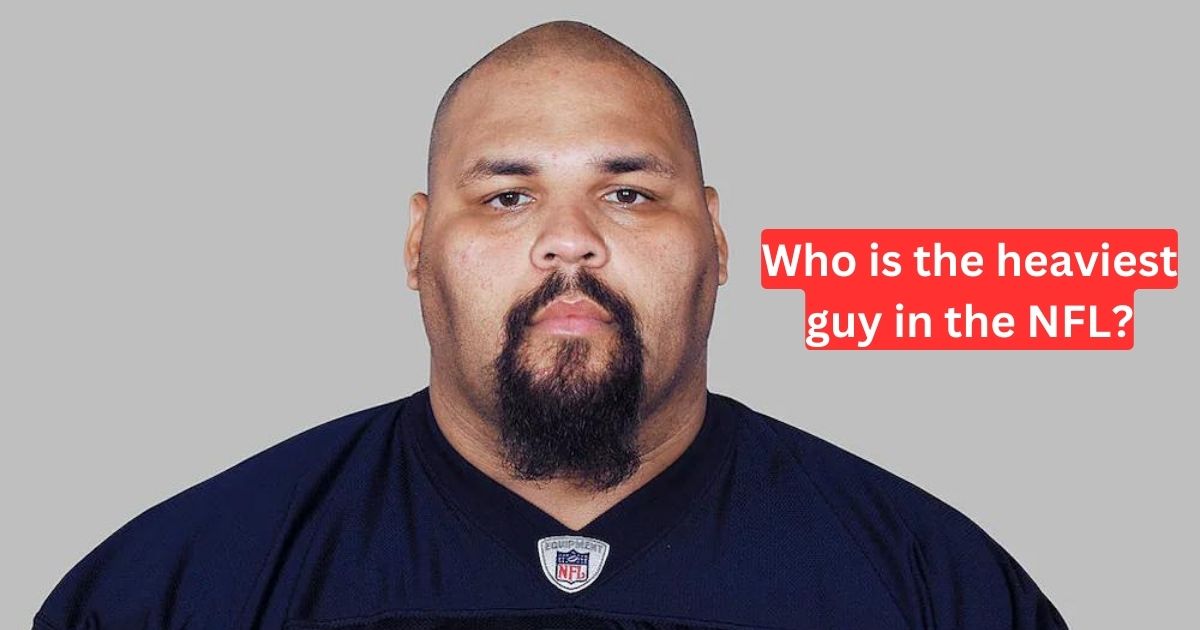NFL players are always fitness freaks but have you ever wondered who is the heaviest guy in the NFL?
Since the NFL is renowned for its larger-than-life athletes, who is the league’s heaviest player? Fans who are in wonder at the huge strength and size of these football giants are frequently curious about the heaviest guy in the NFL.
Let’s look at the NFL’s heaviest player, look into the league’s history with heavyweights, and consider how size affects an athlete’s ability to perform and overall health.
Quickly Navigate
The Current Heaviest Guy in the NFL
Daniel Faalele, an offensive tackle for the Baltimore Ravens, is the heaviest guy in the NFL as of the most recent season, weighing in at 380 pounds.
At 6 feet 8 inches tall, Faalele is a strong presence on the offensive line because of his size, which presents both a challenge and an advantage on the field.
History of the Heaviest Guy in NFL History
Some players in NFL history stood out not only with exceptional skill but also with their extraordinary stature.
Aaron Gibson, a 410-pound heavyweight who played for multiple teams in the early 2000s, was one of the most prominent heavyweights.
Nate Newton of the Dallas Cowboys, who weighed 401 pounds during his career, was another notable individual.
These athletes have shown that size can be an important factor in the game, as they have paved the way for today’s heavyweights.
How does Weight impact performance?
Weight has a big impact on how well a player performs on the field; it can change their strength, speed, and overall style of play.
Players with greater bulk, especially linemen, make effective use of their size to create strong barriers that make it difficult for opponents to fail.
It can be difficult for these athletes to maintain their endurance and speed, so they must balance their size with intense conditioning and training.
Training and Diet Regimens for Larger Players
The heaviest guy in the NFL follows strict diets and training plans customized to meet their specific requirements to preserve their size and strength.

To fuel their intense workouts and recover from the physical demands of the game, their diets are usually high in calories and protein.
Together with cardiovascular exercises, strength training enables them to gain and preserve muscle mass while maintaining flexibility and quickness of movement.
The Role of Offensive and Defensive Linemen
Offensive and defensive linemen in the NFL are frequently the heaviest guys in the NFL, and they make good use of their size in the trenches.
Daniel Faalele is an example of an offensive lineman who both creates running lanes for the ball carriers and protects the quarterback.
Defensive linemen prevent the opposing offense’s ability to execute plays by using their bulk to disrupt their game.
These players’ immense strength and size are essential for managing the line of scrimmage.
Health Considerations for Heavier Athletes
Being the heaviest player has benefits for competitiveness, but there are serious health implications as well. Bigger athletes run a greater risk of developing conditions like diabetes, heart disease, and joint problems.
To guarantee that these athletes can perform at their peak while lowering health risks, teams and trainers keep a careful eye on their health, putting preventative measures into place and offering medical assistance.
ALSO READ: How Many Hours Do NFL Players Sleep?
Comparisons with Other Sports
Let’s take a look at some other sports where big athletes are found, such as sumo wrestling and rugby, to see how big NFL players are in comparison.
Since rugby players particularly forwards are renowned for their strength and size, their average weight between 250 and 280 pounds is usually less than that of NFL linemen.
On the other hand, sumo wrestlers, who can weigh more than 400 pounds, rely on their bulk to give them an advantage and strength in the ring.
These parallels draw attention to the particular needs and benefits of size in various sports.
ALSO READ: Meet Will Grier Wife, a CEO and former cheerleader
Final Note
More than just a number on a scale, the title of the heaviest guy in the NFL signifies a special combination of strength, skill, and strategy.
These players play a key role in the success of their teams by dominating the field with their size. Even though health issues need to be addressed, these players’ influence cannot be denied.










